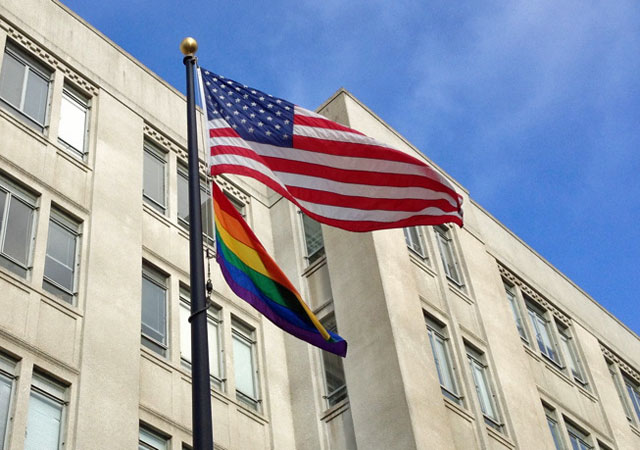
A three-judge panel of the 9th U.S. Circuit Court of Appeals has ruled that prospective jurors may not be excluded from juries solely on the basis of their sexual orientation.
The unanimous ruling (embedded below) comes in a 2011 lawsuit brought by SmithKline Beecham against Abbott Laboratories that related to a licensing agreement and pricing of HIV medications. During jury selection, attorneys for Abbott used their first peremptory challenge to strike a self-identified gay member from the jury pool. SmithKline Beecham lost the case and appealed, citing in part the exclusion of the gay juror.
The Los Angeles Times gives a concise history of the main issue here -- whether the jury-service rights extended to certain minority groups and women ought to apply to prospective LGBT jurors as well:
The Supreme Court barred removing jurors based on race in 1986 and later extended the prohibition to gender. In California, a law signed in 2000 prevents juror strikes based on sexual orientation in state courts. Attorneys can generally get around the prohibitions by simply giving a nondiscriminatory reason.
And, from its ruling today, here's the court's brief recounting of government discrimination against gay and lesbian Americans:
Gays and lesbians have been systematically excluded from most institutions of self-governance. Even our prior cases that rejected heightened scrutiny to classifications on the basis of sexual orientation have acknowledged that gay and lesbian individuals have experienced significant discrimination. In the first half of the twentieth century, public attention was preoccupied with homosexual “infiltration” of the federal government. Gays and lesbians were dismissed from civilian employment in the federal government at a rate of sixty per month. Discrimination in employment was not limited to the federal government; local and state governments also excluded homosexuals, and professional licensing boards often revoked licenses on account of homosexuality. In 1985, the Supreme Court denied certiorari in a case in which a woman had been fired from her job as a guidance counselor in a public school because of her sexuality. Indeed, gays and lesbians were thought to be so contrary to our conception of citizenship that they were made inadmissible under a provision of our immigration laws that required the Immigration and Naturalization Service (INS) to exclude individuals “afflicted with psychopathic personality.” It was not until 1990 that the INS ceased to interpret that category as including gays and lesbians. It is only recently that gay men and women gained the right to be open about their sexuality in the course of their military service. As one scholar put it, throughout the twentieth century, gays and lesbians were the “anticitizen.”
Strikes (from jury service) exercised on the basis of sexual orientation continue this deplorable tradition of treating gays and lesbians as undeserving of participation in our nation’s most cherished rites and rituals. They tell the individual who has been struck, the litigants, other members of the venire, and the public that our judicial system treats gays and lesbians differently. They deprive individuals of the opportunity to participate in perfecting democracy and guarding our ideals of justice on account of a characteristic that has nothing to do with their fitness to serve.
Here's the latest write-through on the story from the Associated Press: